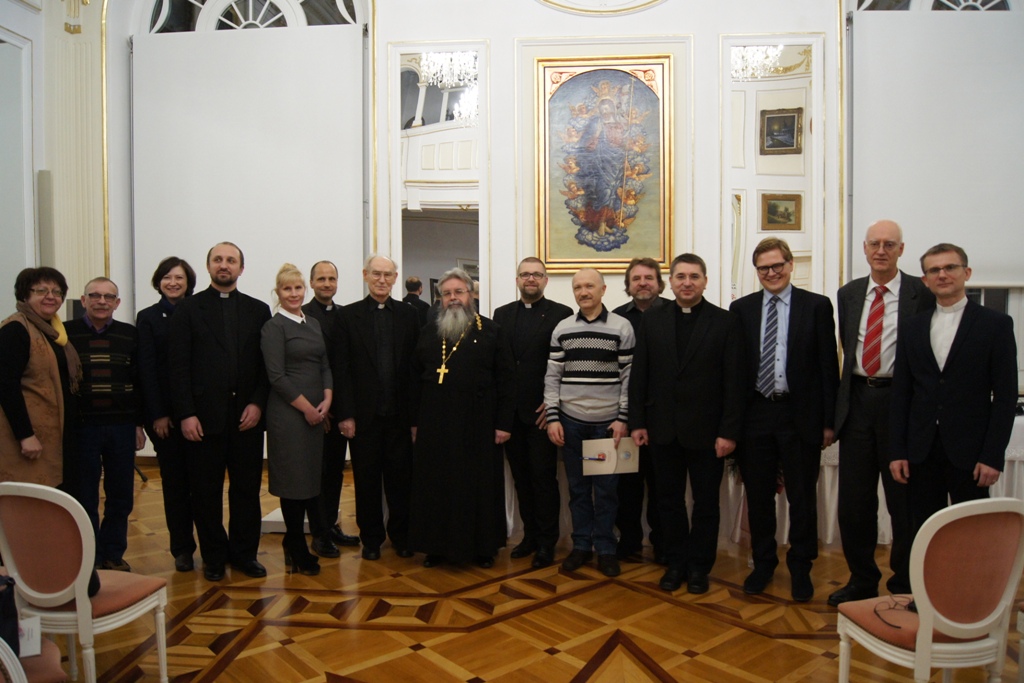History of the “Reconciliation in Europe” project

(photo: mk)
The “Stuttgart Declaration of Guilt” of October 1945 enabled the Evangelical Church in Germany, after years of the Third Reich, to participate again in the international ecumenical community. The first significant steps towards reconciliation were taken by an official delegation of the Evangelical Church in Germany in February 1957 under the leadership of Martin Niemöller, which visited its eastern neighbour.
The breakthrough initiated by the Memorandum of the Evangelical Church in Germany entitled “The Condition of the Exiled Germans and the Relationship of the German People to its Eastern Neighbours” came in 1965. The Memorandum, known as the “Eastern Memorandum of the Evangelical Church in Germany”, was followed by an exchange of letters between the Polish and German Bishops’ Conferences. Both letters expressed a clear opinion that overcoming the division in Germany and Europe will not be achieved by enforcing legal claims, but only in a bilateral, internally accepted process of rapprochement and understanding. The 1970 Treaty between Poland and the Federal Republic of Germany created a framework for numerous German-Polish initiatives and contacts. It also made it possible to establish at the official ecclesiastical level a Commission for Relations between the Evangelical Church in Germany and the Polish Ecumenical Council, which met for the first time in 1974. The relaxation policy of the 1970s resulted in close Polish-German contacts, frequent meetings and mutual visits, exchange programs, cultural undertakings and social assistance.
For many years, German-Polish relations have been one of the most important factors in European policy. The stability or relatively conflict-free atmosphere along the Oder River since 1989 is one of the undeniable determinants of the European order.
In October 1995, on the occasion of the 30th anniversary of the Memorandum, the Churches in Germany and Poland declared themselves responsible for Europe and, recognising themselves as the initiators of political action, expressed their opposition to the apparent unification and destruction of unity, proclaiming the message of reconciliation or “reconciled diversity”. In December 1995, the German and Polish Bishops’ Conferences expressed their approval for the economic and political aspirations of Europe, but drew attention to the essence of the community of values and culture within a uniting continent. Christian testimony must take real form in personal and family lives and, consequently, affect social life. The damage caused by a totalitarian regime over many years of rule can only be rectified if every individual experiences a profound change in his or her heart. It is therefore the task of the Churches to maintain the diversity of Europe and to respect each other’s historical values and cultural achievements, in conjunction with a responsible love for one’s own origins and formation.
The “Reconciliation in Europe – the task of the Churches in Ukraine, Belarus, Poland and Germany” project was initiated in 1995 by the German-Polish Commission for Relations between the Polish Ecumenical Council (PRE) and the Evangelical Church in Germany (EKD), in “Haus der Stille” in Weitenhagen near Greiswald. It was then presented at the Second European Ecumenical Assembly in Graz in 1997. The Churches and the Commission of Relations, which have been involved in the reconciliation process since 1974, have already gathered a great deal of experience in this field. Cultural and confessional divisions between Poland and its eastern neighbours – Ukraine and Belarus – were deepened not only by historical conflicts and traumas, but also strengthened by growing economic and social crises. Another reason for this was the eastern enlargement of the European Union May 2004. Churches have been confronted with questions about their current responsibilities in the region in the field of reconciliation.
In order to implement the project responsibly, the Inter-Church Working Group was established, which initially consisted of representatives of the Churches associated in the PRE and Evangelical Churches in Germany. Currently, the Group is composed of representatives of Evangelical Churches, Orthodox, Roman Catholic and Greek Catholic Churches from four countries: Ukraine, Belarus, Germany and Poland.
Since the beginning of the project, a number of working meetings and international conferences have been held.
See: international conferences within the framework of the “Reconciliation in Europe” project
